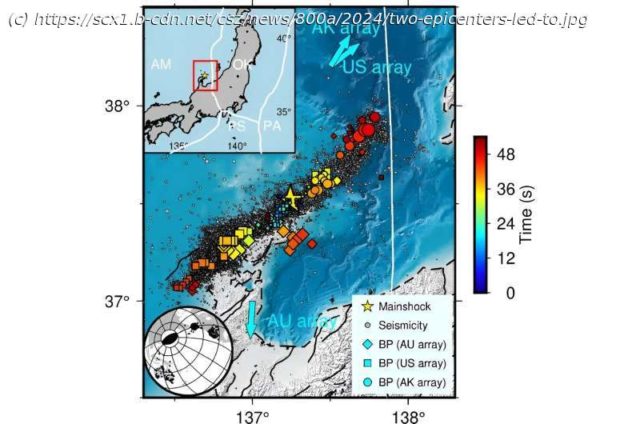The first seven months of 2024 have been so eventful, it’s easy to forget that the year started off with a magnitude 7.5 earthquake centered beneath Japan’s Noto Peninsula on New Year’s Day. The earthquake killed more than 280 people and damaged more than 83,000 homes.
The first seven months of 2024 have been so eventful, it’s easy to forget that the year started off with a magnitude 7.5 earthquake centered beneath Japan’s Noto Peninsula on New Year’s Day. The earthquake killed more than 280 people and damaged more than 83,000 homes.
Geologists have now discovered that the earthquake began almost simultaneously at two different points on the fault, allowing the seismic rupture to encircle and break through a resistant area on the fault known as a barrier. This rare « dual-initiation » mechanism applied intense pressure from both sides of the barrier, leading to the powerful release of energy and substantial ground shaking across the Noto Peninsula.
The Noto earthquake was preceded by intense seismic swarms, which are sequences of many small earthquakes that can sometimes lead to a larger, catastrophic event. By using advanced seismic and geodetic technologies, the research team meticulously analyzed the movements within the Earth during this swarm that led to the earthquake.
The study, published in the journal Science, offers insight into the role of fault barriers, also known as asperities, in earthquake genesis, and will help improve seismic risk assessments and future earthquake forecasting.
Earthquakes happen when fractures in the Earth’s crust, known as faults, allow blocks of rocks on either side of the fault to move past each other.






